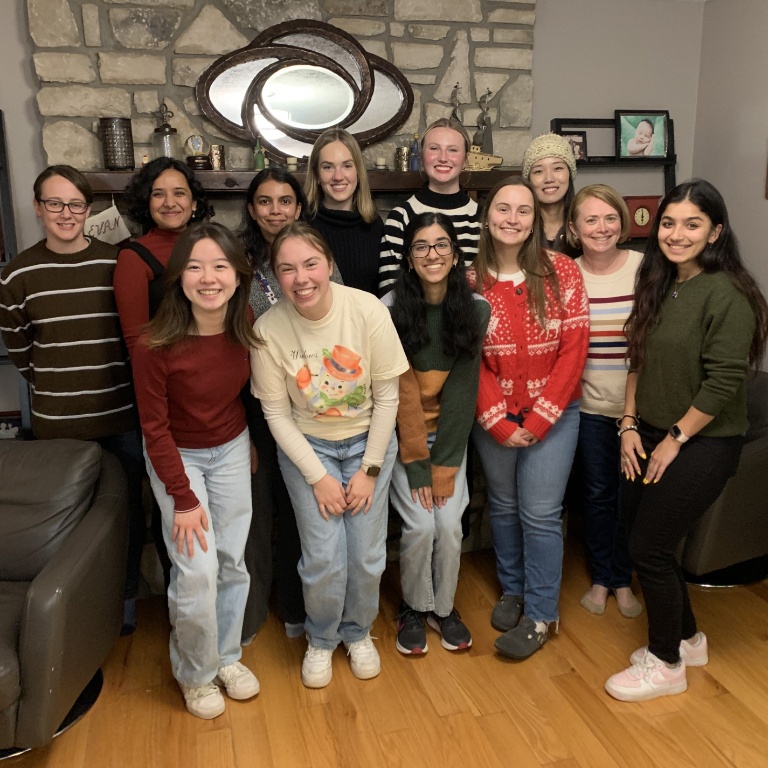An Indiana University biologist has been awarded a five-year, $2.1 million grant from the National Institutes of Health’s National Institute of General Medical Sciences to decipher the molecular mechanisms of a family of proteins that modify and regulate RNA. Abnormal function of these proteins occurs in more than 35 human diseases, including neurological disorders, metabolic diseases and cancer.
Over the past 10 years, research in the Hundley lab has been supported by funding from the American Cancer Society, the National Science Foundation and the National Institutes of Health. This funding has provided hands-on scientific training for three postdoctoral scholars, 15 graduate students and over 20 undergraduate researchers.
Building on this track record, Heather Hundley, the Sagalowsky Professor of Biology, was recently awarded a Maximizing Investigators Research Award (MIRA) from the National Institute of General Medical Sciences. The goal of MIRA is to increase the efficiency of NIGMS funding by providing investigators with greater stability and flexibility, thereby enhancing scientific productivity and the chances for important breakthroughs.
“We’re excited to continue our work to uncover fundamental rules for how the ADAR family of RNA-binding proteins recognize and chemically modify RNA in cells,” Hundley said. “This topic has become increasingly important to understand as this family of RNA-binding proteins is being harnessed for personalized medicine approaches to correct mutations at the RNA level and improve human health.”
All living organisms must convert the information in our DNA into proteins that give our cells and tissues function, a process referred to as gene expression. RNA plays a central role in the gene expression. In particular, messenger RNA (mRNA) carries instructions for protein type and quantity, while RNA binding proteins interact with specific RNA sequences or structures to direct these processes.
Learning more about how the interactions between RNA and RNA-binding proteins differ in specific cell types and change during development is critical to understand both the biological function and pathological consequences of dysregulated interactions.
The proposed work in the MIRA award takes an integrated approach using both a model organism, Caenorhabditis elegans, and human glioblastoma (brain cancer) cell lines to connect the molecular mechanisms of RNA recognition by the ADAR proteins to functional consequences on gene expression in normal and diseased neurons. The work will address fundamental questions of how protein binding to target RNAs is influenced by cellular metabolism and how these events impact neuronal function.


 The College of Arts
The College of Arts